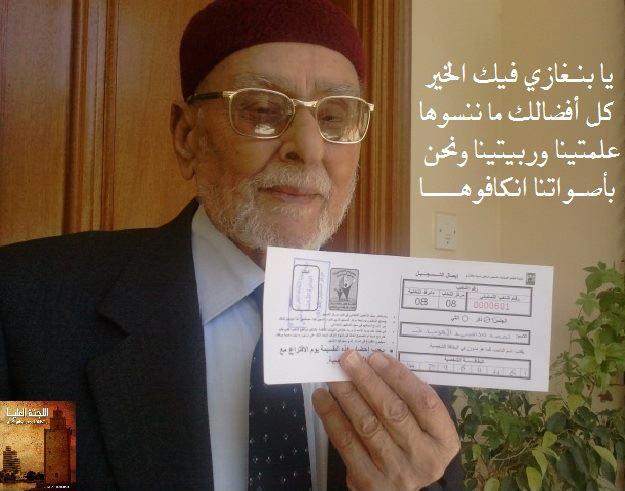The political process and transition to democracy in the new Libya is faced with tremendous challenges, and the new leaders have . . .[restrict]undoubtly lost their way due to their failure to find priorities within the many priorities at hand. Also, the premature optimism shown by the NTC and the interim government has caused both bodies to miserably fail in planning for this critical and explosive period in the new Libya.
Currently, Libya lacks leadership and there is lack of legitimacy and support for the new leaders. Mustafa Abdul Jalil promised on TV that he would step down as soon as liberation is formally declared and that the NTC would be reformed. However, liberation of the Libya was formally declared on 23-10-2011, and Jalil and his team are still serving in office. Jalil failed to meet basic rights and demands of the public to reveal details of all NTC members, and the mechanism by which they have been chosen. The NTC has also failed to conduct financial audits for both current and previous members to reveal the wrongdoing by some of the members as he once mentioned in a press conference in Benghazi before the total collapse of Qaddafi’s regime.
The NTC has failed to rise up to the expectations of the people of Libya for a new era of politics where accountability and transparency are key elements. Critics have accused the NTC of failing to reveal details of all their members because of dodgy members who could cause public anger due to their links to Qaddafi and his sons, or other members who might have ambitions to run for the next general elections, while by law they are not allowed. The lack of transparency and accountability is diverting the path to democratic transition for Libya, and the situation would worsen even further if NTC’s course is not changed.
The NTC has released a number of Qaddafi’s aides including his personal office manager. Bashir Saleh, who holds critical information on Libya investments in African countries. His release was supposedly ordered by Mustafa Abduljalil. Saleh was then appointed by Niger as a presidential adviser and given a diplomat’s status in Niger, although the latter has now been revoked.
The NTC has also failed to have a coherent and inclusive reconciliation process in order to bring all Libyans together ahead of the general election planned to take place on 19 June.
On the other hand, the interim government led by Abdurrahim Al-Kib has failed in some of the very critical areas in the new Libya. The government failed to put together a coherent plan to form the national army and security services. Subsequently, the government failed to protect the vast Libyan borders and illegal immigrants’ influx is ever-expanding. The government has also failed to integrate ex-combatants into the Ministry of Defence and the Ministry of Interior as has been promised. Also, the government has recently failed to protect public money when over LD 1 billion were wrongly distributed to the so-called freedom fighters, with widespread fraud and corruption. The government then decided to halt payments, causing tensions that have led to government offices being stormed and ransacked.
Also, there has been confusion between the role of the NTC and the government in running the country because the role of each of them was not been clearly defined and outlined. There have been interferences of the government into the NTC’s work and vice versa.
Due to the underlying issues highlighted above, holding general elections in June would be a recipe for disaster for the new Libya. General elections would come with high hopes and expectations of the Libyan people. However, with these huge unresolved challenges it is unlikely that any elected government would be able to lead the country through these turbulent times. As a consequence, Libyan’s faith in elections and democracy will fade away as their simplest of rights and demands would not be met, due to the huge underlying issues at hand. The situation in Libya could further deteriorate and the road to democracy would get tougher and uglier.
Instead, local elections throughout Libya should be conducted and local councils should be elected. Once local elections are held, the current NTC could be dissolved and a new one would be formed from delegated nominated by the newly elected local councils. Local elections do not pose the vast amount of challenges posed by the general elections. Due to the localisation of the elections and local ownership of the process, all members of local society, including armed militias, would work towards making the elections a success. Misrata and Zuara set powrful examples of that.
Once the local elections have been conducted and the new NTC is formed the issue of legitimacy for representation is resolved. A new government could then be formed to lead the country along with the new NTC. With such a scenario the political scene in Libya would mature and the on-going political process would have a robust base on which it could stand.
Holding general elections requires tremendous technical and logistical resources. Moreover, they require sufficient political awareness and maturity, so that the people of Libya can trust the process and all of its different elements. This is currently missing.
However, it is worth mentioning that the recently elected Misrata council members requested that the four existing members from Misrata on the NTC be replaced by four others nominated by the local council. The NTC’s response was a refusal. The reasons are not yet clear. This raises question marks about the NTC’s credibility, ambitions and their real intentions towards democratic transition in Libya.
Empirical evidence shows that if the base for any general elections is not mature and robust, then the general elections would be set to fail in achieving their goals and meeting people’s aspirations and demands. Such scenario would lead to unease and possible resumption of hostile activities in the country by self-interest groups especially with weapons scattered throughout the country.
The NTC is required to have contingency measures to tackle any possible scenario beyond 19 June, because failing to plan is planning to fail and NTC should know that by now.
The political process and scene in Libya need to mature first. They must be built on a credible robust base and not a shaky one. Conducting general elections in Libya when the country is not ready for such an event is setting the country to fail and fall into a trap that would prolong transition to democracy.
Mohamed Eljarh is a UK based Libyan academic researcher and political, social development activist. He is from the city of Tobruk in Eastern Libya.
He can be contacted at Email: [email protected] or follow him on Twitter: @Eljarh [/restrict]





